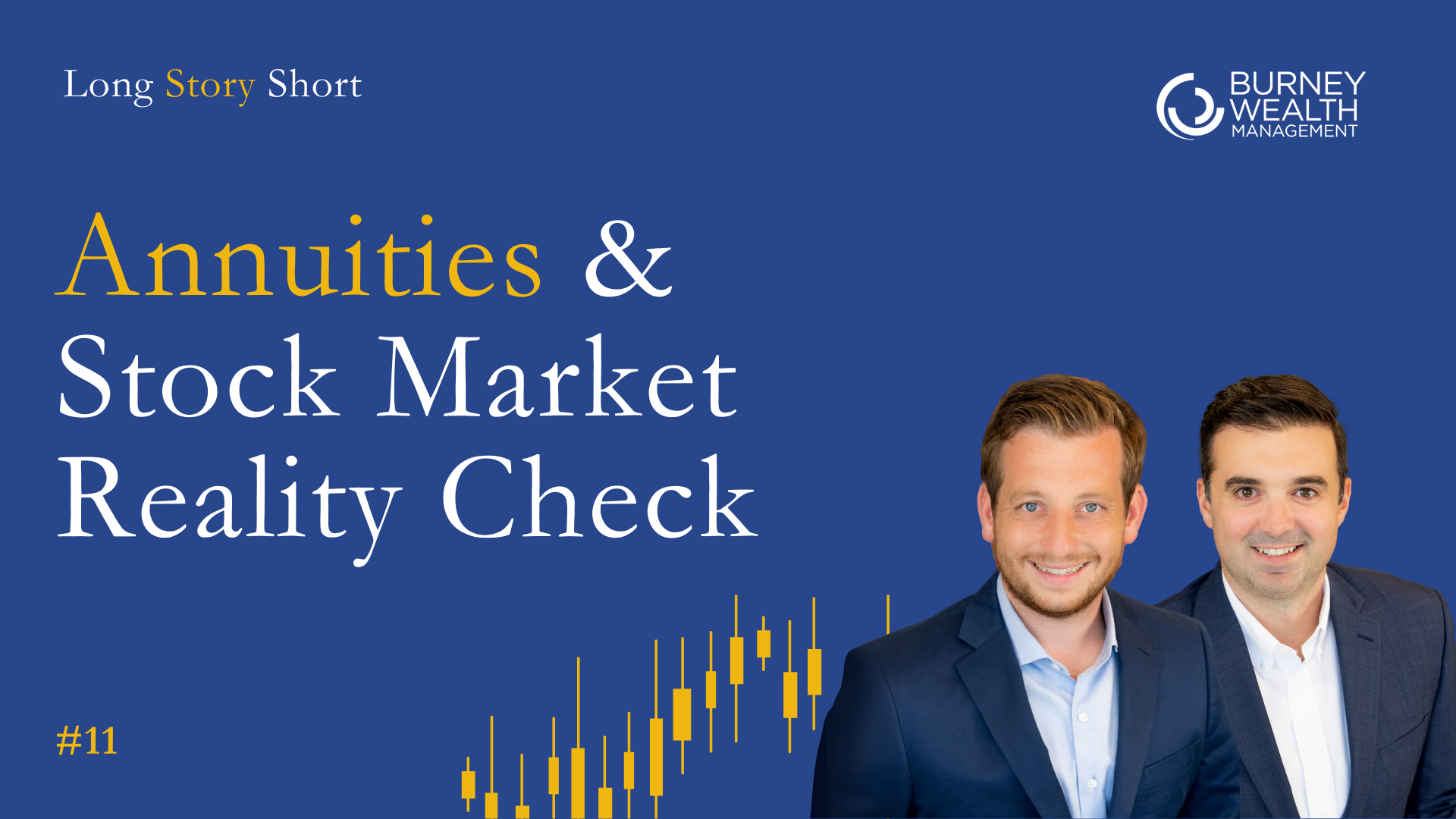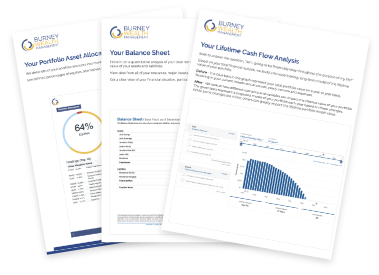Why Annuities Usually Don't Make Sense and Market Reality Check | Ep 11

Watch or listen to the episode below:
College football season is starting, which got Andy and Adam thinking about annuities. The connection? Both can be exciting or complete madness, depending on the circumstances.
Unlike college football, annuities rarely provide the excitement their marketing promises. Despite the allure of "guaranteed income," they usually create more problems than they solve.
The Guaranteed Income Mirage
An annuity is simple in concept: you hand over a lump sum to an insurance company, and they promise to pay you income for life. It sounds like the perfect retirement solution until you examine what you're actually giving up.
The biggest sacrifice is flexibility. When you retire, you might think you know what you'll need to spend for the next 30-40 years. But life doesn't work that way.
What if you want to buy a second home? What if you need to help family members with unexpected expenses? What if you have significant medical costs? What if you simply want to spend more during your active early retirement years?
With an annuity, that money is locked away. You've traded the ability to adapt to life's changes for the promise of predictable payments.
When Annuities Make Sense
The rare exception: someone with very limited savings who can't afford to run out of money and worries about overspending. They might annuitize a small amount just to cover basic expenses.
This describes almost no one listening to financial podcasts or working with investment advisors.
Fear-Based Marketing
Annuity salespeople are amazing at selling during market downturns. Remember 2020? LinkedIn was flooded with "See, this is why you need guaranteed income" posts. The market recovered within months, but the damage was done - people had already locked up their money.
The same salespeople who profit from 8% commissions are the ones creating the fear that drives sales. It's a predatory but effective strategy.
Market Reality Check
Speaking of market fears, recession predictions are making another round despite markets sitting at all-time highs. Bloomberg declared a 100% chance of recession in 2022. Still waiting.
The disconnect creates cognitive dissonance. Portfolio balances have never been higher, but daily headlines scream about risks. This feeling isn't new. There's always something scary in the news.
Andy offers a different perspective: the stock market represents the collective wisdom of millions of people putting their money where their beliefs are. Day traders, pension funds, hedge funds, and 401(k) investors are all agreeing on prices.
When someone calls the market "irrational," they're claiming to be smarter than millions of other investors risking real money. Sometimes they're right, but usually they're not.
The AI Trade Isn't Dead
Recent headlines declared the AI rally over after a few days of red. Andy pulled up Nvidia's chart and found that it's still wildly positive year-to-date. Calling the trade dead after a minor pullback seems premature.
Unlike the dot-com bubble, today's AI companies are insanely profitable. Nvidia is still selling chips with enormous margins. The mag seven stocks continue posting strong results.
Could we be in a bubble? Maybe. But valuations alone don't cause sell-offs, especially when companies keep growing earnings. The comparison to 2000 misses the key difference, that today's companies actually make money.
Government Venture Capital
The government's 10% stake in Intel raises interesting questions about free enterprise. Using CHIPS Act funding to buy equity instead of just giving grants makes financial sense, but sets an unusual precedent.
For Intel shareholders, it's not necessarily good news. The stake is dilutive, and international customers might worry about government influence. For most investors, it's an interesting storyline but irrelevant to financial planning.
Same Story, Different Product
Whether it's annuities, recession fears, or AI bubble concerns, the story is always the same: products and predictions that promise certainty in uncertain times usually create new problems. Guaranteed income sacrifices flexibility. Market timing sacrifices long-term returns. Fear-based decisions sacrifice wealth.
The boring truth remains: diversified investing, reasonable costs, and staying invested through cycles continues to work better than alternatives promising certainty in an uncertain world.
Listen to the full conversation on Long Story Short:
The Burney Company is an SEC-registered investment adviser. Burney Wealth Management is a division of the Burney Company. Registration with the SEC or any state securities authority does not imply that Burney Company or any of its principals or employees possesses a particular level of skill or training in the investment advisory business or any other business. Burney Company does not provide legal, tax, or accounting advice, but offers it through third parties. Before making any financial decisions, clients should consult their legal and/or tax advisors.



